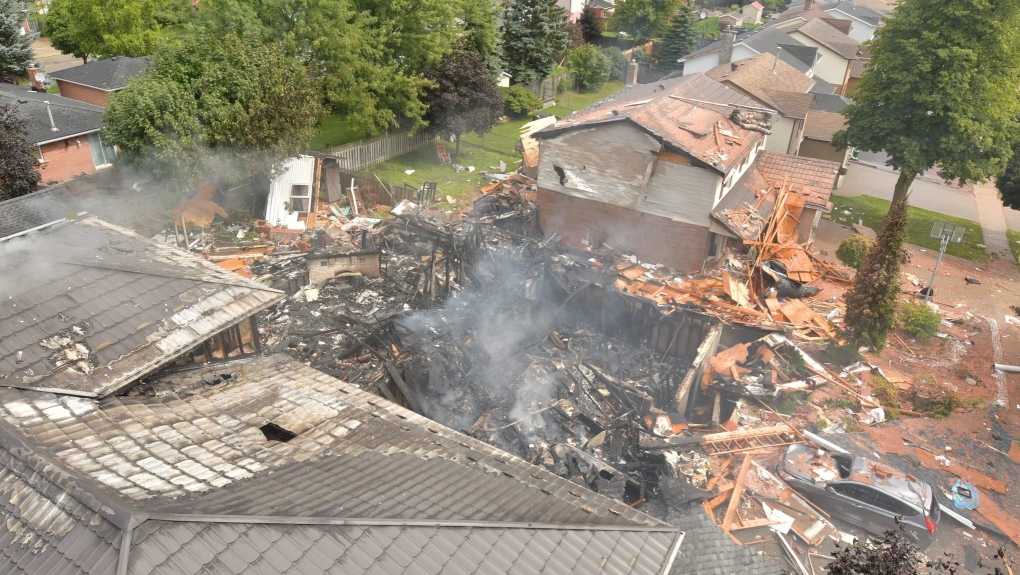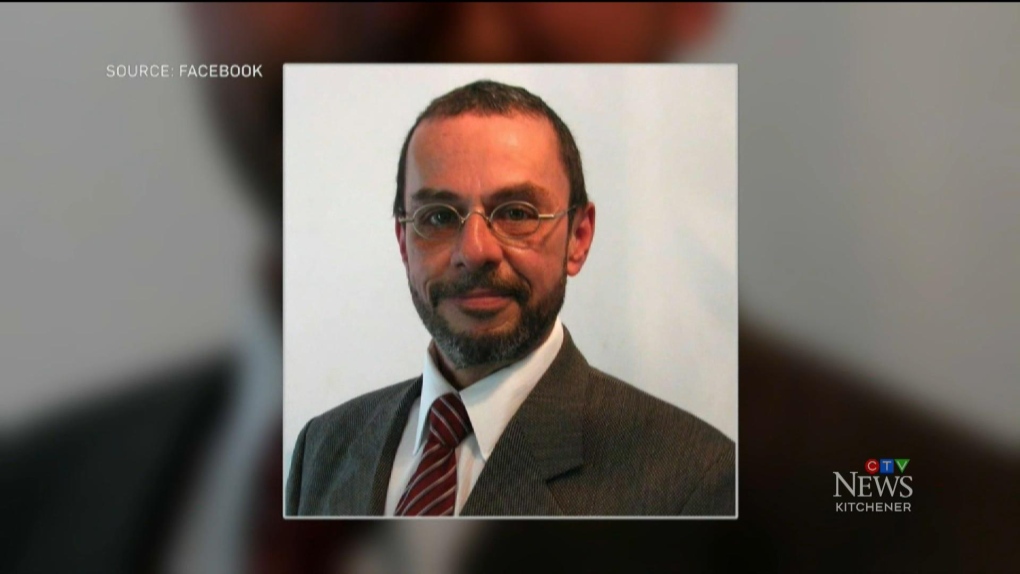Ontario Review Board considers future of Kitchener man who killed wife, blew up home
An Ontario Review Board hearing was held at the Southwest Centre for Forensic Mental Health Care in St. Thomas on Thursday to consider the future of Udo Haan.
In August 2018, Haan killed his wife Edra and caused an explosion that levelled their Sprucedale Crescent home in Kitchener.
“The Ontario Review Board is an oversight body; it's a quasi legal process, and their role is to oversee the care that we provide. They issue a disposition for our patients each year that determines what our patients are allowed to do,” Director of Southwest Centre for Forensic Mental Health Care Kent Lewis said.
 The aftermath of the explosion at Sprucedale Crescent. The house was completely destroyed, and the adjacent homes also caught fire. (WRPS / Twitter)
The aftermath of the explosion at Sprucedale Crescent. The house was completely destroyed, and the adjacent homes also caught fire. (WRPS / Twitter)
The lawyers at Haan’s hearing all agree that he is still considered a significant threat.
But his psychiatrist told those in attendance Haan now has a diagnosis of an unspecified bipolar disorder and had recently started on lithium.
The hospital lawyer, crown, and Haan’s lawyer are all suggesting the same thing.
“A detention in the hospital which keeps him here but authorizes the hospital to grant him passes up to five days in the community, as well as potentially to live outside the hospital in the community, subject to hospital supervision, when Mr. Haan demonstrates to the hospital that he’s medication compliant, that his symptoms are stabilized and that he’s ready, and not before,” Haan’s lawyer Steve Gehl said.
Haan has been allowed to spend some time in the community over the last year.
“Up until now, he has very limited access on day passes outside of the physical building in the hospital, which he has exercised and exercised appropriately,” Gehl said.
 Udo Haan's new diagnosis
Udo Haan's new diagnosis
The hospital’s director said that their goal is always to help patients return to the community but it can take many years.
“We have a strong risk assessment process and we provide excellent mental health care. And so we gradually move people forward as they progress in their recovery and we help them ultimately reintegrate back into the community only when it’s the right time,” Lewis said.
The panel will release their decision, called a disposition, in about a week. More details into the reasons will follow a few weeks after that.
CTVNews.ca Top Stories

Trump threatens to try to take back the Panama Canal. Panama's president balks at the suggestion
Donald Trump suggested Sunday that his new administration could try to regain control of the Panama Canal that the United States “foolishly” ceded to its Central American ally, contending that shippers are charged “ridiculous” fees to pass through the vital transportation channel linking the Atlantic and Pacific Oceans.
Wrongfully convicted N.B. man has mixed feelings since exoneration
Robert Mailman, 76, was exonerated on Jan. 4 of a 1983 murder for which he and his friend Walter Gillespie served lengthy prison terms.
opinion Christmas movies for people who don't like Christmas movies
The holidays can bring up a whole gamut of emotions, not just love and goodwill. So CTV film critic Richard Crouse offers up a list of Christmas movies for people who might not enjoy traditional Christmas movies.
Can the Governor General do what Pierre Poilievre is asking? This expert says no
A historically difficult week for Prime Minister Justin Trudeau and his Liberal government ended with a renewed push from Conservative Leader Pierre Poilievre to topple this government – this time in the form a letter to the Governor General.
New York City police investigate death of woman found on fire in subway car
New York City Police on Sunday were seeking a man they believe is connected to the early morning death of a woman who was sleeping on a stationary subway train before she was intentionally lit on fire.
More than 7,000 Jeep SUVs recalled in Canada over camera display concern
A software issue potentially affecting the rearview camera display in select Jeep Wagoneer and Grand Cherokee models has prompted a recall of more than 7,000 vehicles.
'I'm still thinking pinch me': lost puppy reunited with family after five years
After almost five years of searching and never giving up hope, the Tuffin family received the best Christmas gift they could have hoped for: being reunited with their long-lost puppy.
10 hospitalized after suspected carbon monoxide poisoning in Ottawa's east end
The Ottawa Police Service says ten people were taken to hospital, with one of them in life-threatening condition, after being exposed to suspected carbon monoxide in the neighbourhood of Vanier on Sunday morning.
Pickup truck driver killed by police after driving through Texas mall and injuring 5
A pickup truck driver fleeing police careened through the doors of a JCPenney store in Texas and continued through a busy mall, injuring five people before he was fatally shot by officers, authorities said.


































